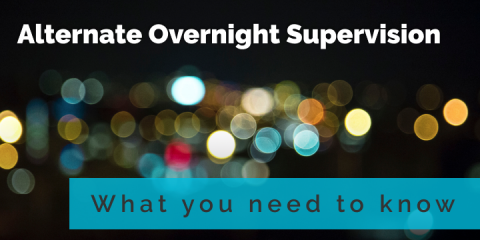Alternate Overnight Supervision

Anna MacIntyre and Deb Amman
Minnesota Department of Human Services
What it is
Legislation, introduced in 2009, made it possible to use monitoring technology in Adult Foster Care (AFC) and Community Residential (CRS) settings in place of on-site overnight staff during normal (overnight) sleep hours.
A proven way to increase both independence and privacy of the person served, this newer monitoring practice is called Alternate Overnight Supervision and can be utilized following a formal assessment of the individual and once informed consent has been given by the person served. Along with obtaining an AOST (Alternate Overnight Supervision Technology) License, defined policies and procedures must be in place.
The person served should:
- Be reasonably independent and have the ability to request assistance or direction.
- Be able to have their needs met within a reasonable timeframe for health and safety by using the least intrusive technology option.
How to get it
Once the technology has been found to match the needs of the individual, the AOST License can be applied for. DHS Licensing provides an AOST Licensing Checklist which identifies all licensing requirements.
Following the submission, barring any open investigations relating to supervision, the Licensing Consultant will review the file within 60 days. If any deficiencies are found within the application, the applicant will have 45 days to correct.
—
Anna MacIntyre is the policy lead for the Minnesota Department of Human Services, Disability Services Division. She can be reached at anna.macintyre (at) state.mn.us
Deb Amman is a licensing consultant with the Minnesota Department of Human Services, Office of Inspector General Licensing Division. She can be reached deborah.g.amman (at) state.mn.us



